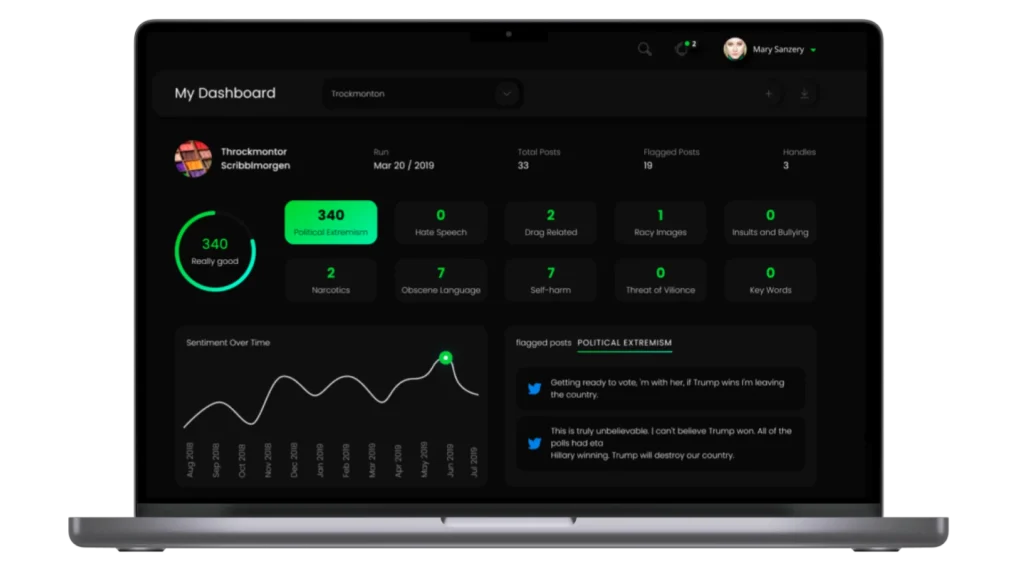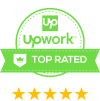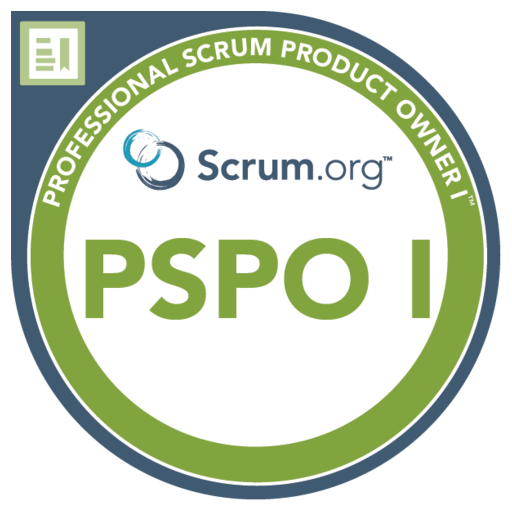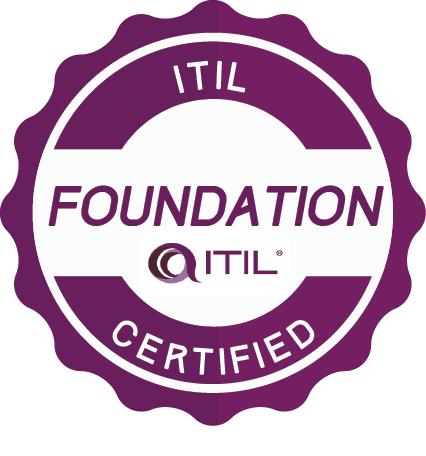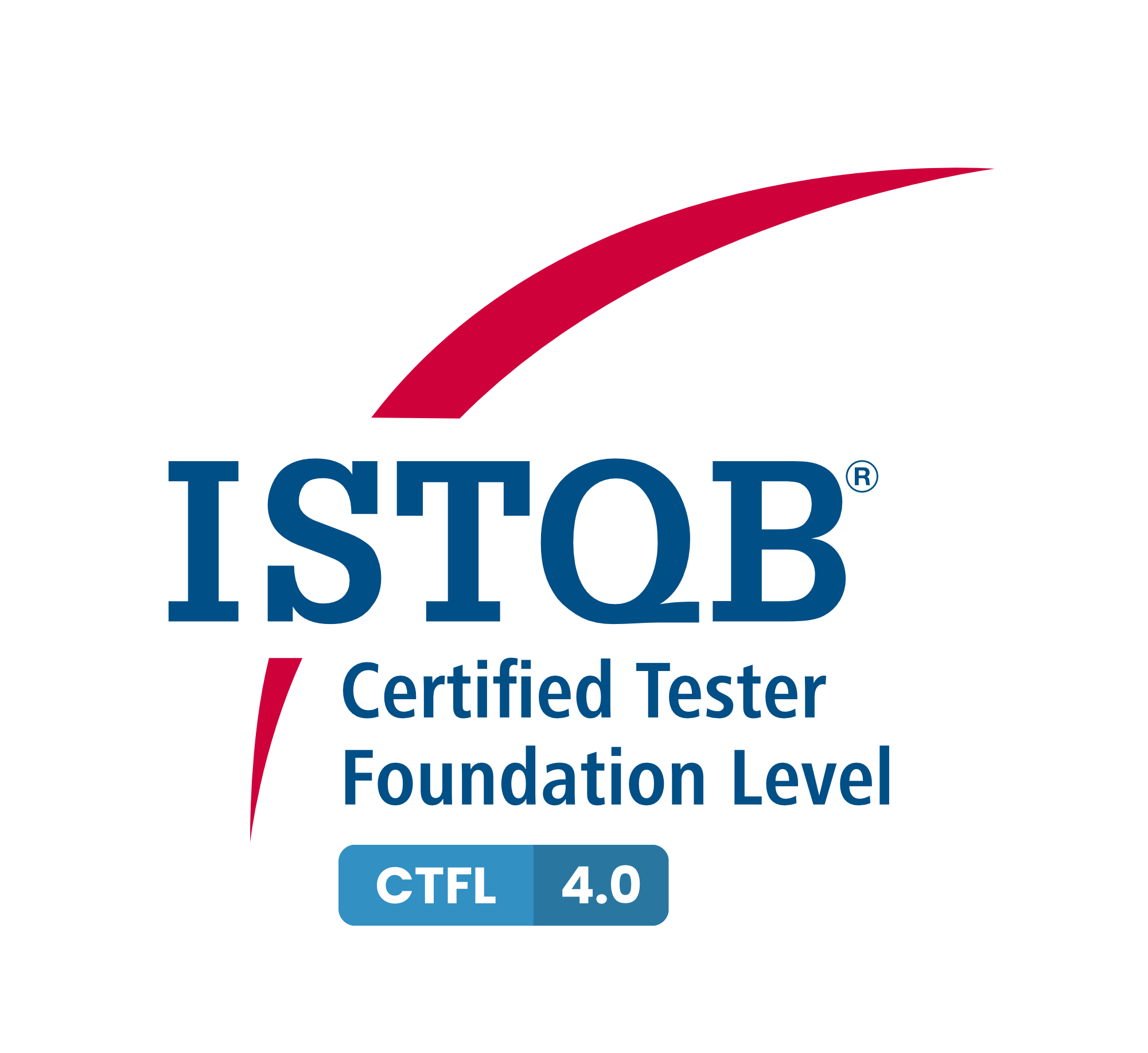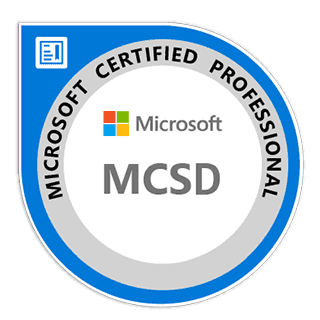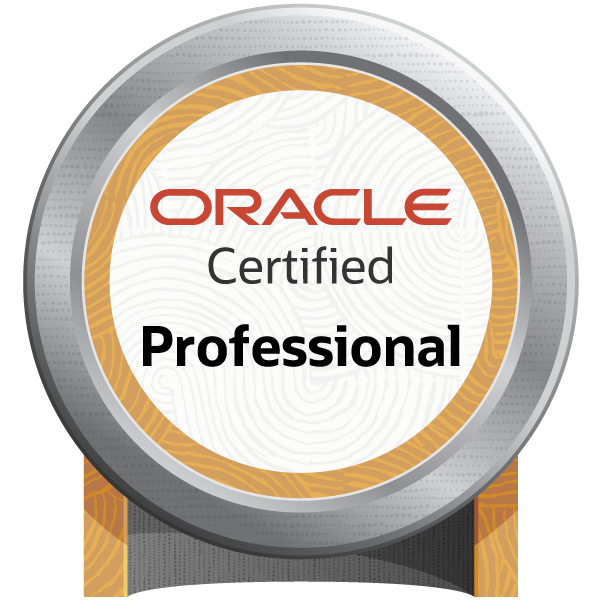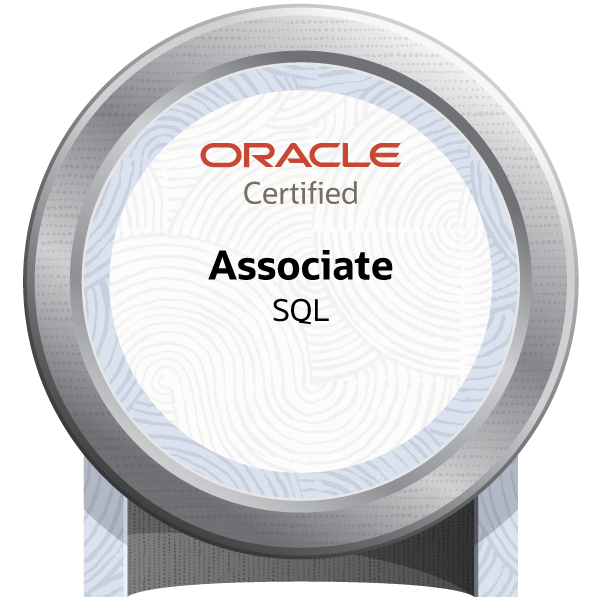Get a recommendation engine similar to the one on Amazon, eBay, and Alibaba. Reach better order value by recommending products based on past purchases, viewed items, or shopping cart contents (collaborative filtering engine). Alternatively, suggest products by analyzing their attributes, descriptions, and user preferences (content-based filtering) or combining these approaches (hybrid).

Recommendation Engines Development Services
What are Recommendation Engines and How Can They Help My Business?
Recommendation engines are software applications or algorithms that suggest items or content to users. They are widely used in e-commerce, online advertising, music streaming, movie streaming, news websites, and more, to help users discover products, services, or content that are relevant and interesting to them. Simply put, it’s the way YouTube, Netflix or Spotify recommendations work.
AI recommendation engines make it so the content you offer is personalized and tailored; the better this criterion is met, the more users you can attract, retain and provide quality service to.
There are generally three main types of recommendation engines:
Content-based recommendation (analyzes items’ properties or features and assesses user’s part behavior);
Collaborative filtering (recommends items based on the behavior or preferences of similar users, relying on ratings, reviews, or purchase history of similar users);
Hybrid recommendations (combines the previous two principles).
Recommendation Engines Services We Provide
Let us tailor an AI recommendation engine to your production and content: Devox can develop content-based, collaborative filtering, or hybrid engines for multiple purposes, combining approaches where your objectives necessitate it.
-
E-commerce Recommendation Engines
-
Movie and TV Show Recommendation Engines
Provide your audience with Netflix- and HBO-like experiences by offering movies or TV shows based on user ratings, reviews, and users’ viewing history (collaborative filtering), or genre, actors, directors, and plot summaries (content-based). Go for hybrid model to kill two birds with one stone and hit every category of the above.
-
Music Recommendation Engines
Introduce your listeners to music and podcasts that will find a response in their hearts: go for music suggestions based on listening history and user preferences (collaborative filtering), base the recommendations on audio features, lyrics, and music genre (content-based filtering), and enable automatics tailored playlist generation or radio stations based on user taste.
-
News and Content Recommendation Engines
Create a personalized news feed ensuring every piece will capture your users’ attention thanks to analyzing reading history, keywords and interests. Create a tailored reading experience, not missing out on trending topics and breaking news altogether.
-
Health, Fitness and Beauty Recommendation Engines
Recommend services based on different criteria (location, history, preferences), suggest fitness activities, workout plans and clubs, provide nutritional guidance, or offer a personalized selection of beauty and skincare products with a recommendation engine customized to your brand or product. Get an algorithm similar to the one in Sephora, L’Oréal, Fitbit, Booksy, or StyleSeat.
-
Custom Recommendation Engine
Speak to Devox if you haven’t found a solution for your industry above. Whether you’d like to develop an engine for travel and accommodation recommendations similar to Booking or Airbnb, job and career suggestions like LinkedIn, or any hobby and lifestyle-oriented engine, we will hear your requirements out and provide what you’re looking for.
Benefits of Recommendation Engines for Your Business
AI-powered recommendation engine is a lot more than just a feed. Discover how can it improve the customer experience and turn your brand around.
-
Make Users and Keep Them
Keep users engaged by offering relevant content, products, or services that will find a response in their tastes and preferences. Providing personalized recommendations will reduce bounce rates, increase the time they spend on a platform, and boost overall user experience. Build long-term client trust, retain as many as possible, and reduce churn by providing value they won’t see in your competitors.
-
Reach Higher Conversion Rates and Get Better Discovery
Raise conversion rates and sales by recommending products or services that are more likely to match the user's interests and needs, boosting sales and monthly income on the way. Users will discover new and relevant content, products, or services they may not have found on their own, increasing platform exploration and discovery.
-
Enlighten Cross-Selling and Upselling
Provide genuine value and offer tangible benefit while offering additional products or services. Recommendation systems can suggest complementary or higher-priced items to users in a wise way, facilitating cross-selling and upselling opportunities, thus increasing average order value.
-
Provide Optimal Content Delivery and Reduce Decision Fatigue
Make it so your media and content platforms deliver content that resonates with your user every time they see it. Presenting curated options will ease their decision-making, reduce cognitive load, and raise their satisfaction from picking your brand as a provider.
-
Leverage A/B Testing and Experimentation
Kill two birds with one stone, measuring your customers’ taste while making money on a certain product. Recommendation engines allow performing A/B testing and experimentation on the go to fine-tune recommendation algorithms, improving their effectiveness over time.
Key Features of Recommendation Engines System
Data Collection and Integration
Recommendation engines collect and integrate various types of data, including user behavior data (e.g., clicks, purchases, ratings), item data (e.g., product attributes, descriptions), and contextual data (e.g., user demographics, location).
User Profiling
User profiling involves creating user profiles or representations that capture individual preferences, interests, and behaviors. User profiles are continuously updated as users interact with the system.
Item Profiling
Item profiling creates representations or profiles of items or content based on their attributes and characteristics. This helps the recommendation engine understand the content and its relevance to users.
Collaborative Filtering
Collaborative filtering techniques analyze user interactions and identify similarities or patterns among users. They recommend items that users with similar behavior have liked or interacted with.
Content-Based Filtering
Content-based filtering analyzes item attributes and user preferences to recommend items that are similar in content or characteristics to those the user has previously interacted with or shown interest in.
Hybrid Recommendation
Hybrid recommendation systems combine collaborative filtering and content-based filtering approaches to provide more accurate and diverse recommendations. This approach mitigates the limitations of individual methods.
Real-Time Recommendations
In some applications like e-commerce and streaming services, real-time recommendation engines generate instant recommendations as users interact with the platform. These systems are optimized for low-latency responses.
Personalization
Personalization is a central feature of recommendation engines. They tailor recommendations to individual user preferences, providing a unique experience for each user.
Recommendation Diversity
Recommenders aim to balance personalization with diversity to introduce users to new and relevant items outside their typical choices, preventing recommendation "filter bubbles."
Serendipity
Serendipity refers to the ability of the recommendation engine to surprise users with unexpected but enjoyable recommendations, encouraging exploration and discovery.
Explainability
Some recommendation systems offer explanations for their recommendations, helping users understand why a particular item is being recommended based on their behavior or preferences.
Evaluation and Metrics
Recommendation engines employ various evaluation metrics to measure their performance, such as Mean Absolute Error (MAE), Root Mean Square Error (RMSE), Precision, Recall, and click-through rates (CTR).
Continuous Learning
Recommendation systems are designed to adapt and learn from user interactions over time. They continuously update user and item profiles and retrain their models to improve recommendation accuracy.
User Feedback and Ratings
Many recommendation systems incorporate user feedback and ratings to improve recommendations and user satisfaction. Users can provide explicit feedback by rating items or providing reviews.

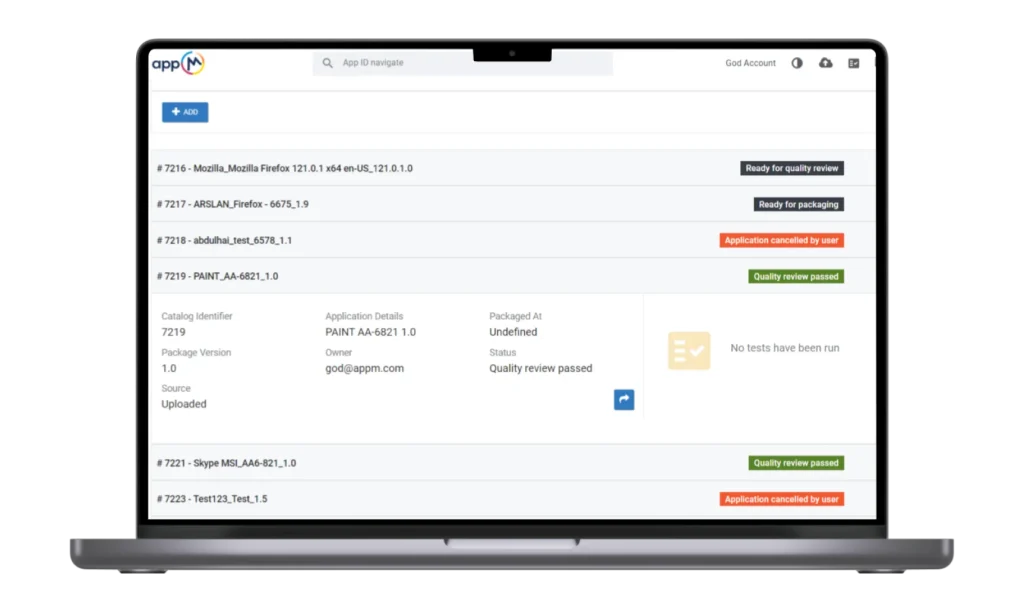
Juriba: Enterprise Digital Workplace Management Platform for Migration & Automation
An enterprise-grade automation platform that streamlines IT project workflows through smart dashboards.
Additional Info
- .NET 6
- MS SQL
- Redis
- Angular
- NgRx
- RxJS
- Kubernetes
- Elasticsearch
United Kingdom

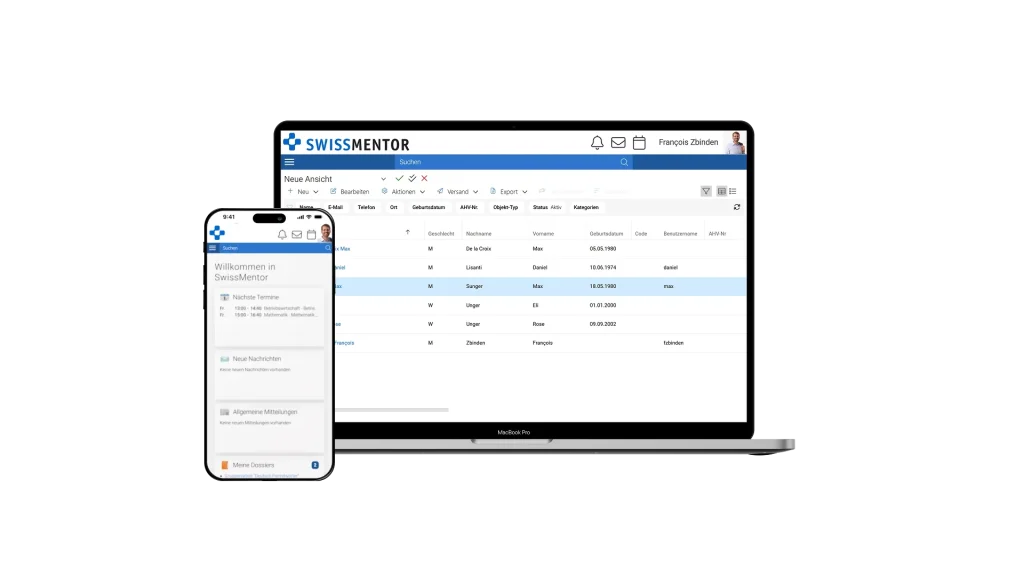
Modular LMS for Multi-Domain Learning: SwissMentor’s Enterprise-Grade Online Platform
A full-featured learning management system built to digitize education workflows, manage courses, and support online learning at scale.
Additional Info
- .NET Core
- PostgreSQL
- Angular
- Docker
- Kubernetes
- Azure
- SCORM
Switzerland
Trusted by
Industry Contribution Awards & Certifications
Testimonials
FAQ
-
What is better: AI recommendation engine open source or custom?
The choice between an AI recommendation engine open source and a custom-built solution depends on specific project requirements. Open-source recommendation engines are advantageous for many scenarios thanks to their cost-effectiveness, transparency, and community support. They provide a solid foundation with pre-built algorithms and libraries, saving development time.
On the other hand, custom-built ones are ideal when businesses require highly specialized or unique recommendation algorithms tailored to their specific needs. However, they involve higher development costs and longer timeframes.
The decision ultimately hinges on factors like budget, project complexity, and the need for personalized algorithms. Often, a hybrid approach that combines open source with custom components can be an effective compromise.
-
What industries can benefit from recommendation engine development?
Recommendation engines have wide-reaching applications across various industries. For instance, e-commerce platforms leverage them to boost sales and reduce cart abandonment rates. In the entertainment industry, streaming services like Netflix use recommendation engines to enhance user engagement. Additionally, content publishing platforms rely on recommendation systems to increase content consumption and user retention. These are just a few examples of industries where recommendation engines play a pivotal role in resolving business pains and improving user experiences.
-
How long does recommendation engine development take?
The timeline for recommendation engine AI development varies based on project complexity, data volume, and customization requirements. Typically, a basic recommendation engine can be developed in a few weeks to a couple of months.
However, more complex projects, especially those involving extensive data analysis, feature engineering, and custom algorithms, may take several months to a year or more. To get a precise estimate for your project, it’s best to consult with our team, who can assess your specific needs and provide a more accurate timeline.
-
Can recommendation engines be fine-tuned to adapt to changing user behavior and preferences?
Yes, recommendation engines can be fine-tuned to adapt to changing user behavior and preferences. These systems continuously collect user interaction data, such as clicks and purchases, to stay updated on evolving preferences. They periodically update user and item profiles based on this data, ensuring that recommendations remain relevant.
Additionally, recommendation models can be retrained using the latest information, allowing them to adjust to changing patterns. A/B testing and experimentation are often used to assess different recommendation strategies and their impact on user behavior. This ongoing refinement ensures that recommendations are accurate and aligned with users’ evolving interests, ultimately enhancing user satisfaction and engagement.
Want to Achieve Your Goals? Book Your Call Now!
We Fix, Transform, and Skyrocket Your Software.
Tell us where your system needs help — we’ll show you how to move forward with clarity and speed. From architecture to launch — we’re your engineering partner.
Book your free consultation. We’ll help you move faster, and smarter.
Let's Discuss Your Project!
Share the details of your project – like scope or business challenges. Our team will carefully study them and then we’ll figure out the next move together.
Thank You for Contacting Us!
We appreciate you reaching out. Your message has been received, and a member of our team will get back to you within 24 hours.
In the meantime, feel free to follow our social.
Thank You for Subscribing!
Welcome to the Devox Software community! We're excited to have you on board. You'll now receive the latest industry insights, company news, and exclusive updates straight to your inbox.









